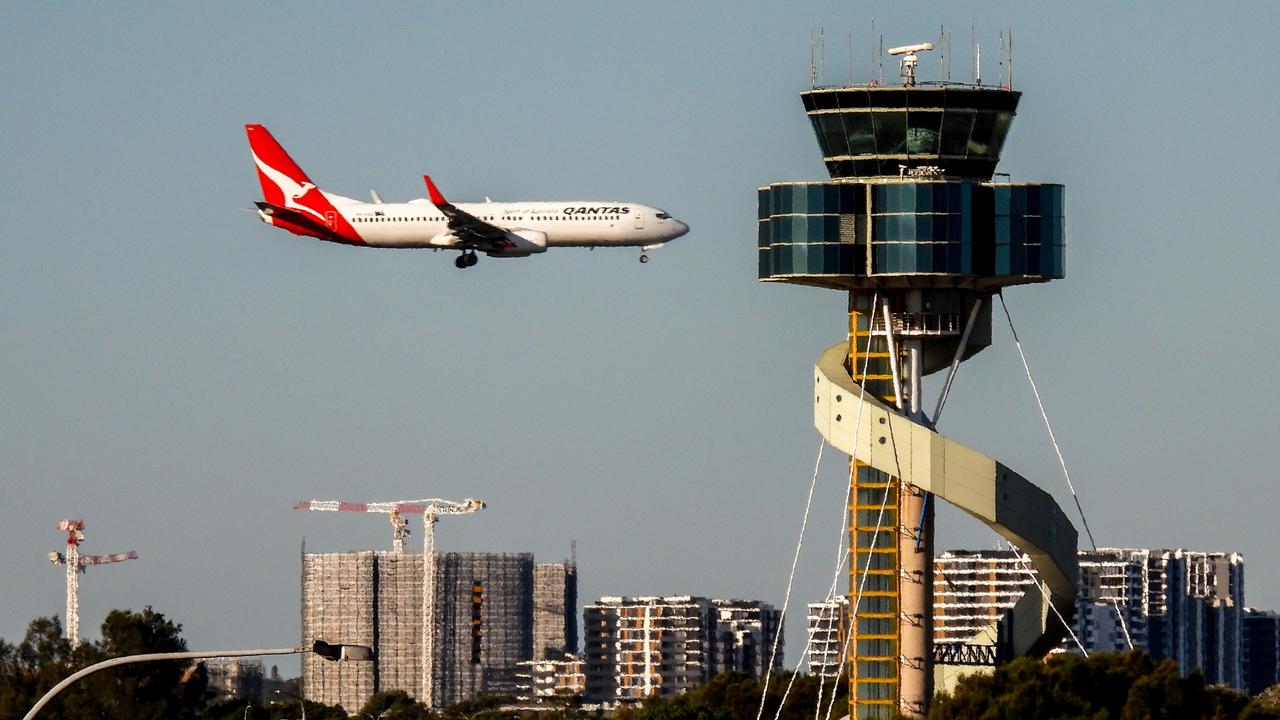Can Craig Hutchison’s Sports Entertainment Group survive debt issues and broaden its audience?
The man behind Australia’s biggest sports media network is confident it can trade its way out of its financial stresses and its need to make inroads into Sydney and Brisbane radio’s psyche.
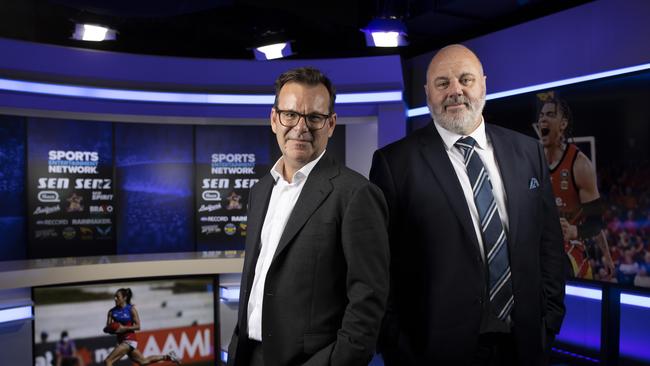
Business
Don't miss out on the headlines from Business. Followed categories will be added to My News.
Craig Hutchison’s sports media conglomerate is under pressure.
He needs to clear another $5m debt and for his Sydney and Brisbane radio stations to approach the success of his Melbourne assets for the business to survive in the short term and then ultimately thrive.
His ASX-listed Sports Entertainment Group owns a collection of radio stations and print and digital media assets across Australia, sports teams like basketball club Perth Wildcats and talent and events management divisions.
It has attracted plenty of scrutiny, and some criticism, in recent weeks as his roll-up strategy – which has resulted in almost $70m in cash and debt outlaid on buying a dizzying array of sports-related assets in five years – gets squeezed by SEG’s high debt.
The business has had an almost fully drawn $28m facility with Commonwealth Bank that expires next August and been in breach of the debt’s prevailing banking covenants – which the bank has waived until the end of this year – that led to a note in its 2023 accounts saying the company’s status as a going concern was a “material uncertainty”.
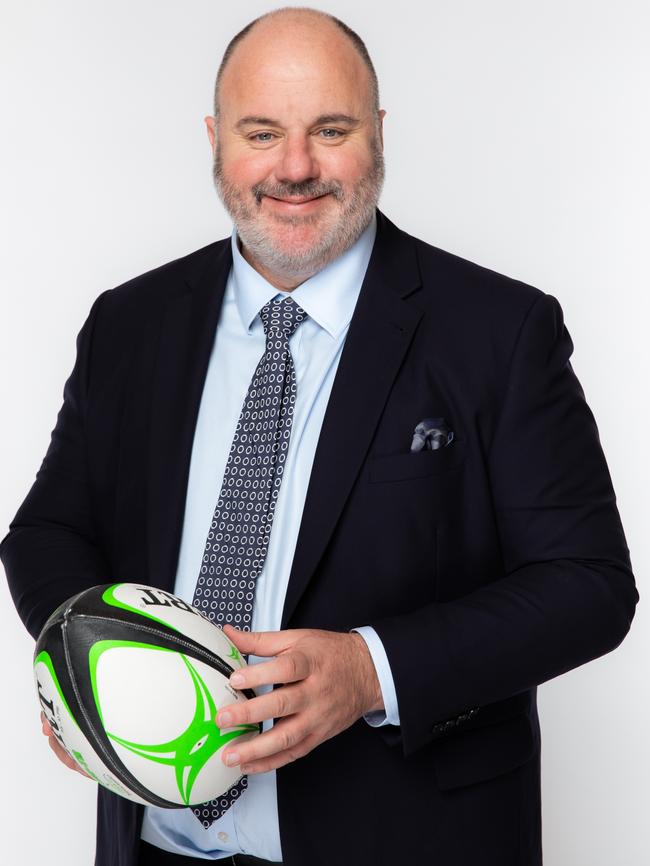
Some breathing room was found on Thursday when SEG clinched a $3.7m sale of its struggling New Zealand arm, which will help bolster its financial position – at least for now.
Hutchison is confident that SEG can survive its recent wobbles, sort the debt situation and, ultimately, that the model of combining a collection of sports assets can work in a sports-mad country.
“I struggle to realise why anyone thinks it can’t work,” Hutchison says quietly but firmly in an interview with The Weekend Australian from his Melbourne office alongside SEG chairman Craig Coleman.
“This country is obsessed with sport. So sport as a product is just going to keep surging and it’s proven to be recession proof.
“We don’t need 25 million listeners. But we need those of the 25 million (who love sports) to be really invested. And they are.”
SEG’s flagship SEN radio station in Melbourne has that established engaged audience. However, official ratings may in some cases have dropped from when Hutchinson, a well known Melbourne AFL journalist-turned-sports-business-entrepreneur, folded his private Crocmedia business into the ASX-listed Pacific Star Network in early 2018 and started on his expansion strategy with the backing of Coleman’s Viburnum funds management business.
(Viburnum and Hutchison are SEG’s two biggest shareholders.)
But it has considerable digital listenership, including the top ranked radio podcast in Gerald Whateley’s breakfast show. “That’s ahead of two (radio) legends in Ray Hadley and Neil Mitchell,” Hutchison says.
Monetising that audience is the challenge, which is why Hutchison has tried to be a “one-stop shop” for brands that want to invest in sport. The theory is that more value is derived for a sponsor of, say, a sports team, if they can also be offered advertising on sports radio across all of Australia, podcasts and other media, and also potentially tap into SEG’s athlete and talent management or events divisions.

But bringing all those businesses together has been costly for a business that now only has market capitalisation of about $58m.
Its Brisbane radio licence cost $12m last year, the Wildcats about $7.15m in 2021 and its Sydney foray $11.2m the year before.
SEG had only paid about $1m for its New Zealand assets in 2021, but its poor financial performance and subsequent $5.521m impairment was a major cause for SEG’s $9.3m statutory net loss in 2023.
Before Thursday’s deal, SEG’s gross debt was about $28m. The $3.7m proceeds will be used to bring that amount down to roughly $24m when the deal is completed in February.
SEG’s debt ratio is based on underlying EBITDA, reduced to a pro-forma gearing level of about 2.5 times after the New Zealand sale. It was at least 3 times at the end of June, triggering the issue with its debt covenants – which Commonwealth Bank waived for the September and December quarters while SEG attempts to get its financial house in order.
“We acknowledge that right at the moment the debt settings and the capital settings are too stretched,” Coleman says, adding that SEG had used debt leverage of two to three times its underlying earnings to fund its expansion.
“But that is not news to us. We have been aware of and working on that for quite some time.”
Coleman describes the New Zealand sale as “the quickest solution at the moment” to get debt down.
Hutchison says while he had confidence in the strategy of expanding across the Tasman, “the reality is we weren’t able to trade profitably quickly enough there”.
To get the debt down further and closer to 2.5 times earnings, Coleman says SEG needs to shave about another $5m off the overall figure – “the quantum of what we need to solve is about $5m in debt reduction … and we’re working on a few things to do that.”
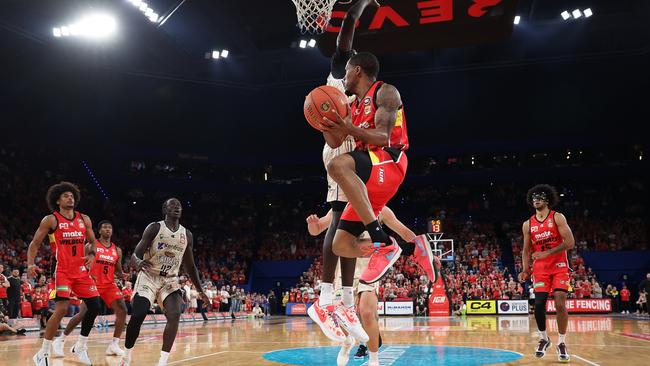
“Remember our facility doesn’t expire until August so our road map was to get this back into settings that the bank could accommodate – to (financially as a business) perform in the meantime around the level of covenants that we historically have, up until that June quarter, and then get this debt extended at a core level of somewhere around $20 (million) in the first quarter next year. I fully expect we’ll do that.”
When asked if SEG is considering capital raising, outside investment or other options to find the $5m, Coleman says SEG has several options – but ruled out further asset sales.
One big option would be selling the Wildcats, which is likely worth four to five times SEG’s initial investment given other National Basketball League clubs are selling for $30m valuations or more.
Hutchison says that is not being considered.
“It is number one in the league in membership, in sponsorship and it is profitable. It is an incredible asset, it is highly emotive and it pairs beautifully with our media business in Perth,” he says.
SEG also owns a Women’s NBL team, two basketball teams in New Zealand (Hutchison says they won’t be sold) and will have a new team in the financially struggling Super Netball competition.
Hutchison says the teams division will overall be profitable this year, while Coleman says complimentary businesses like talent management also are in a decent shape and generate cash.
Longer term, though, the absolute fulcrum of making SEG’s business strategy a success is getting more people to listen to sports radio in Sydney and Brisbane.
It is the tantalising opportunity of nationalising sports media content but a difficult one given a sport like rugby league is entrenched in two states but the AFL is the leading football code in most other places.
“If you’re talking about the kind of potential for an equity investor pay-off, the heart of it is can Sydney and Brisbane over time look anything like Melbourne?” Coleman says.
Hutchison adds that if his Sydney and Brisbane stations get “the same opportunity, the same talent and then turned out the same as Melbourne we’d be a three or four hundred million dollar business. It is that big a delta”.
SEG is not close to that now, and radio ratings for both Brisbane and Sydney have been low so far. Coleman concedes there is an argument SEG may have overpaid for its Queensland assets.
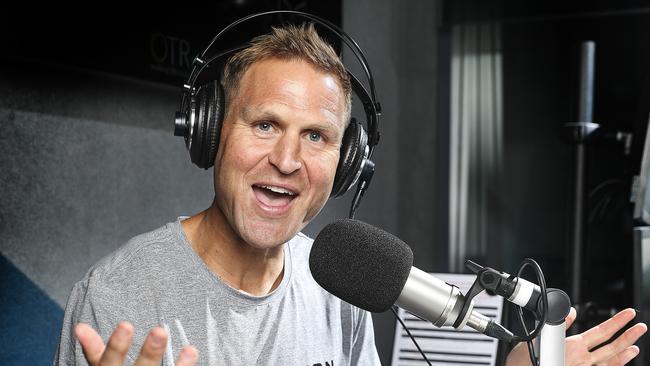
Melbourne is, Hutchison stresses, “at the pointy end of what is a sports-mad town” that is AFL obsessed.
Can he get anywhere near that passion for sport in Sydney and Brisbane?
“We don’t need to win the whole city over in both places, we just need to win enough of them over. Long term we are really confident in Sydney and we’re certain it is needed in our model,” Hutchison says.
Regarding Brisbane, he points to the investment in sporting infrastructure in the run-up to the 2032 Olympics and growing population as factors that give him optimism for that market.
Hutchison is certainly confident, but the jury is out for now at least.
Interest rates are rising, the advertising market is softening – he says SEN is outperforming its sector – and a crackdown on gambling ads is coming, which may have a negative impact on his business.
Is he worried about failing?
“Not at all. With our asset base and the depth of them, it has never crossed my mind,” he says.
“I think we are builders and growers … and despite the fact we haven’t delivered the core return to our shareholders that we would have liked to, I don’t look back on the journey so far and think we would have done a lot differently.”
It remains to be seen if the Commonwealth Bank and listeners in Sydney and Brisbane agree.
More Coverage
Originally published as Can Craig Hutchison’s Sports Entertainment Group survive debt issues and broaden its audience?




